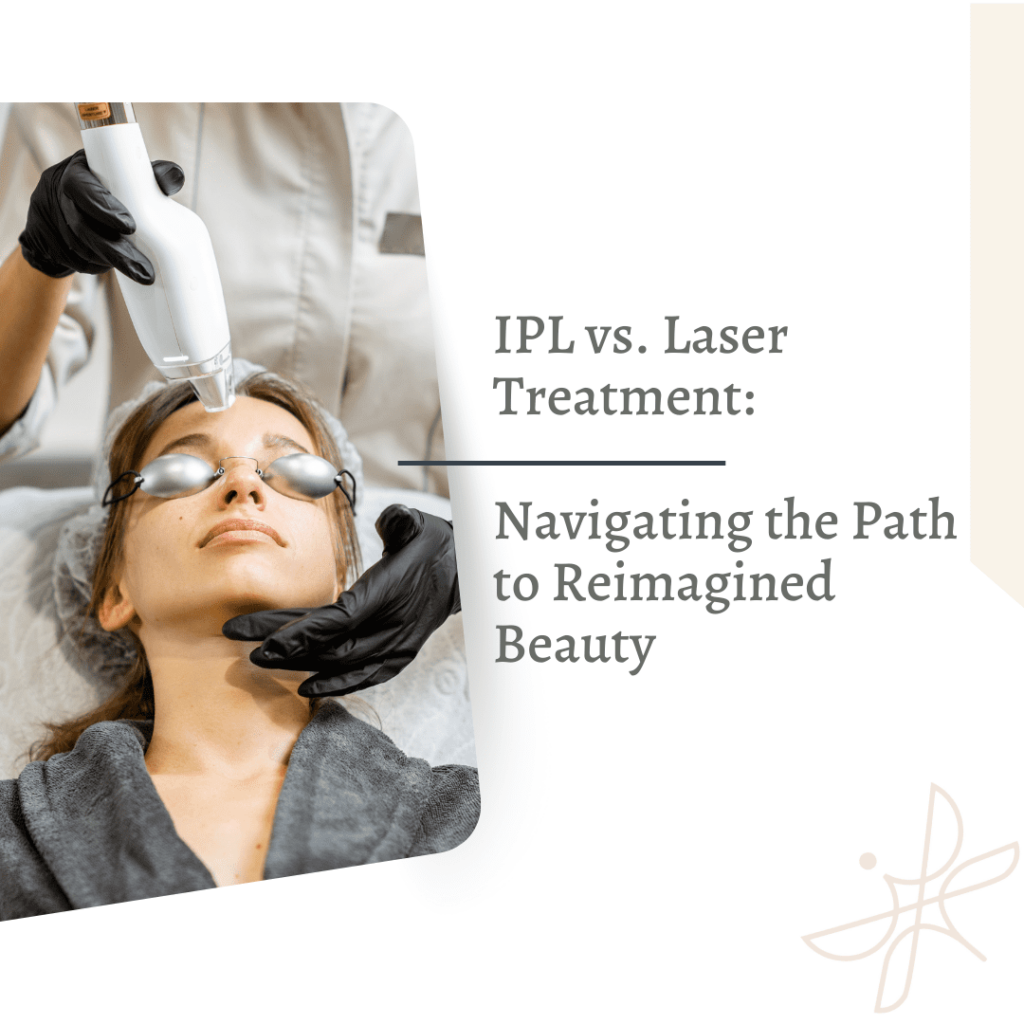In the quest for flawless skin and the pursuit of beauty, advanced technologies have revolutionized the landscape of dermatological treatments. Among these innovations, Intense Pulsed Light (IPL) and Laser treatments have emerged as go-to options for addressing various skin concerns. Whether you\’re aiming to banish pesky hair, erase unwanted pigmentation, or rejuvenate your complexion, understanding the nuances between IPL and laser therapy is crucial for making informed decisions about your skincare regimen.
What is IPL?
IPL, or Intense Pulsed Light, is a versatile technology that utilizes broad-spectrum light to target various skin issues. It works by emitting multiple wavelengths of light that penetrate the skin, targeting pigment cells, hair follicles, or blood vessels, depending on the treatment goal. IPL is often used for hair removal, photorejuvenation, and treating conditions like acne, rosacea, and sun damage.
Laser Treatment: How Does It Differ?
Unlike IPL, which emits a broad spectrum of light, laser treatments use a single wavelength of focused light to target specific skin concerns. This precision makes lasers highly effective for tasks such as hair removal, tattoo removal, skin tightening, and treating vascular lesions or scars. Laser treatments are tailored to target specific chromophores in the skin, making them ideal for precise and targeted results.
Key Differences
1. Wavelength Specificity: Laser treatments are characterized by their precise targeting of specific chromophores, making them highly effective for targeted treatments. IPL, on the other hand, utilizes a broader spectrum of light, making it less specific but more versatile for addressing a range of skin concerns.
2. Treatment Depth: Laser treatments penetrate deeper into the skin compared to IPL, allowing for more effective targeting of specific structures within the skin. This depth can be advantageous for treatments such as skin tightening or scar reduction.
3. Skin Type Considerations: IPL is generally considered safer for a broader range of skin types and tones, while laser treatments may require specific wavelengths or adjustments to accommodate different skin types safely.
4. Treatment Efficacy: While both IPL and laser treatments can yield significant improvements in various skin concerns, the efficacy may vary depending on the specific condition being treated and individual skin characteristics.
Similarities
1. Targeted Results: Both IPL and laser treatments offer targeted results for specific skin concerns, whether it be hair removal, pigmentation correction, or skin rejuvenation.
2. Minimal Downtime: In general, both IPL and laser treatments offer minimal downtime compared to more invasive procedures, making them popular choices for busy individuals seeking noticeable results without extended recovery periods.
3. Long-Term Results* With a series of treatments, both IPL and laser therapy can provide long-term improvements in skin tone, texture, and overall appearance, making them valuable investments in long-lasting beauty.
Conclusion
When it comes to IPL vs. laser treatment, there is no one-size-fits-all answer. Each technology offers unique benefits and considerations, depending on your skin type, concerns, and desired outcomes. Consulting with a qualified dermatologist or skincare specialist is essential for determining the most suitable treatment approach for your individual needs.
In the journey to reimagine beauty, embracing the advancements in dermatological technology allows us to unlock new possibilities for achieving radiant, healthy skin. Whether you opt for IPL, laser treatment, or a combination of both, the key lies in understanding the differences and similarities between these modalities to pave the way towards your vision of beauty reimagined.





